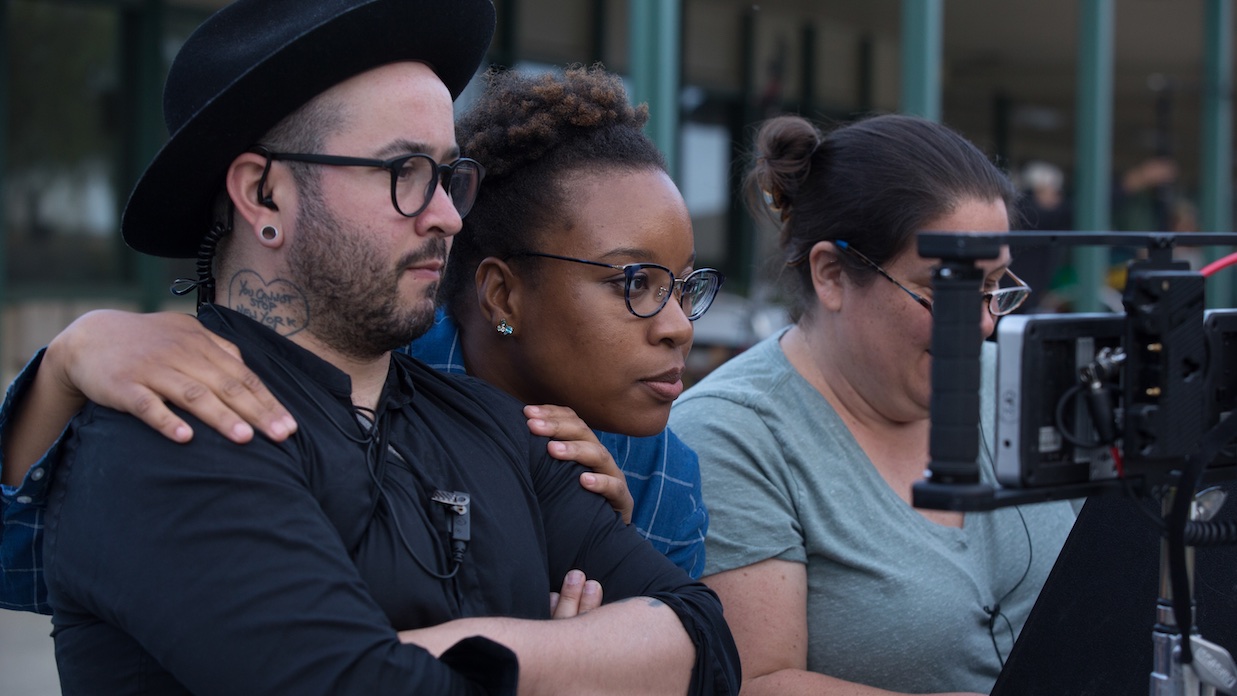 Back to selection
Back to selection
“When a Protagonist in a Movie is Not a White Man, the Director is Asked to Explain That Character’s Existence”: Clemency | Director/Writer Chinonye Chukwu
 Clemencycinematographer Eric Branco, director/writer Chinonye Chukwu
Clemencycinematographer Eric Branco, director/writer Chinonye Chukwu Whenever directors watch their own films, they always do so with the knowledge that there are moments that occurred during their production — whether that’s in the financing and development or shooting or post — that required incredible ingenuity, skill, planning or just plain luck, but whose difficulty is invisible to most spectators. These are the moments directors are often the most proud of, and that pride comes with the knowledge that no one on the outside could ever properly appreciate what went into them.
So, we ask: “What hidden part of your film are you most privately proud of and why?”
I think that often times when a protagonist in a movie is not a white man, the director is asked to explain that character’s existence. Why is the warden in your film a black woman? Is your film really about race and gender?
I am most proud of having portrayed a nuanced black female protagonist who is navigating a compelling and uniquely human journey that is not solely motivated by her race and gender—a black woman who doesn’t have to explain away her existence in the narrative.
Clemency observes the psychological and emotional journey of a prison warden as she struggles with the professional responsibility of carrying out death penalty executions. It is amid this journey that the complex ecosystem of humanities impacted by capital punishment is explored.
